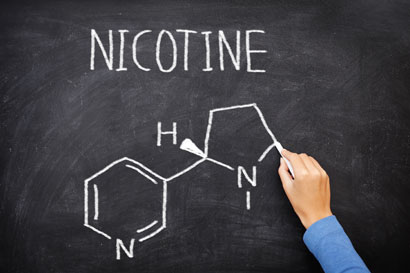The Altria Group and Philip Morris USA said yesterday that they and other US companies had agreed on the timing of court-ordered communications about cigarettes and smoking on television and in newspapers.
‘The communications, which will begin on November 26, 2017, stem from a 1999 lawsuit the federal government brought against the major domestic cigarette companies that focused on industry conduct dating back to the 1950s,’ according to a note posted on the Altria website.
‘The court’s order requires the companies to publish five statements related to cigarette smoking across several communication channels, including newspaper and television ads, on the companies’ websites and on cigarette packs for a year or more.’
In describing the background to the federal government’s action, Altria said that, in 1999, the US government had filed a lawsuit in the US District Court for the District of Columbia against various cigarette manufacturers and their parent companies asserting claims under various federal statutes. ‘The lawsuit sought to recover billions of dollars in health care costs for tobacco-related illnesses,’ Altria said. ‘The government also sought disgorgement of company profits and an injunction prohibiting certain actions by defendants.
‘The court eventually dismissed all of the government’s claims but one, and rejected the monetary penalties the government sought.
‘In August 2006, the court entered judgment in favor of the government on its remaining claim. The court issued findings related to the companies’ conduct and a permanent injunction that is in place today.’
Altria said that, as part of the injunction, the court had ordered the defendants to make certain ‘corrective statements’ related to issues raised in the litigation. And since 2006, the parties had vigorously litigated aspects of the injunction, including the content of the corrective statements.
“This industry has changed dramatically over the last 20 years, including becoming regulated by the FDA, which we supported,” said Murray Garnick, Altria’s executive vice president and general counsel. “We’re focused on the future and, with FDA in place, working to develop less risky tobacco products.”
Altria said that today, tobacco was one of the most regulated industries in the country. The way in which cigarettes were manufactured, marketed and sold had changed markedly since the lawsuit was filed. And, according to government data, underage cigarette smoking had declined to historical lows – from 28.3 percent in 1997 to 5.9 percent in 2016.
‘The 1998 tobacco settlement agreements with the state attorneys general led to significant industry changes,’ it said. ‘For example, the settlement agreements banned cigarette billboards, stadium advertisements and brand-name merchandise.
‘Restrictions became more extensive in 2009 when Congress gave the US Food and Drug Administration broad regulatory authority over nearly every aspect of tobacco product manufacturing and marketing.’
“We remain committed to aligning our business practices with society’s expectations of a responsible company, said Garnick. “This includes communicating openly about the health effects of our products, continuing to support cessation efforts, helping reduce underage tobacco use and developing potentially reduced-risk products.”








